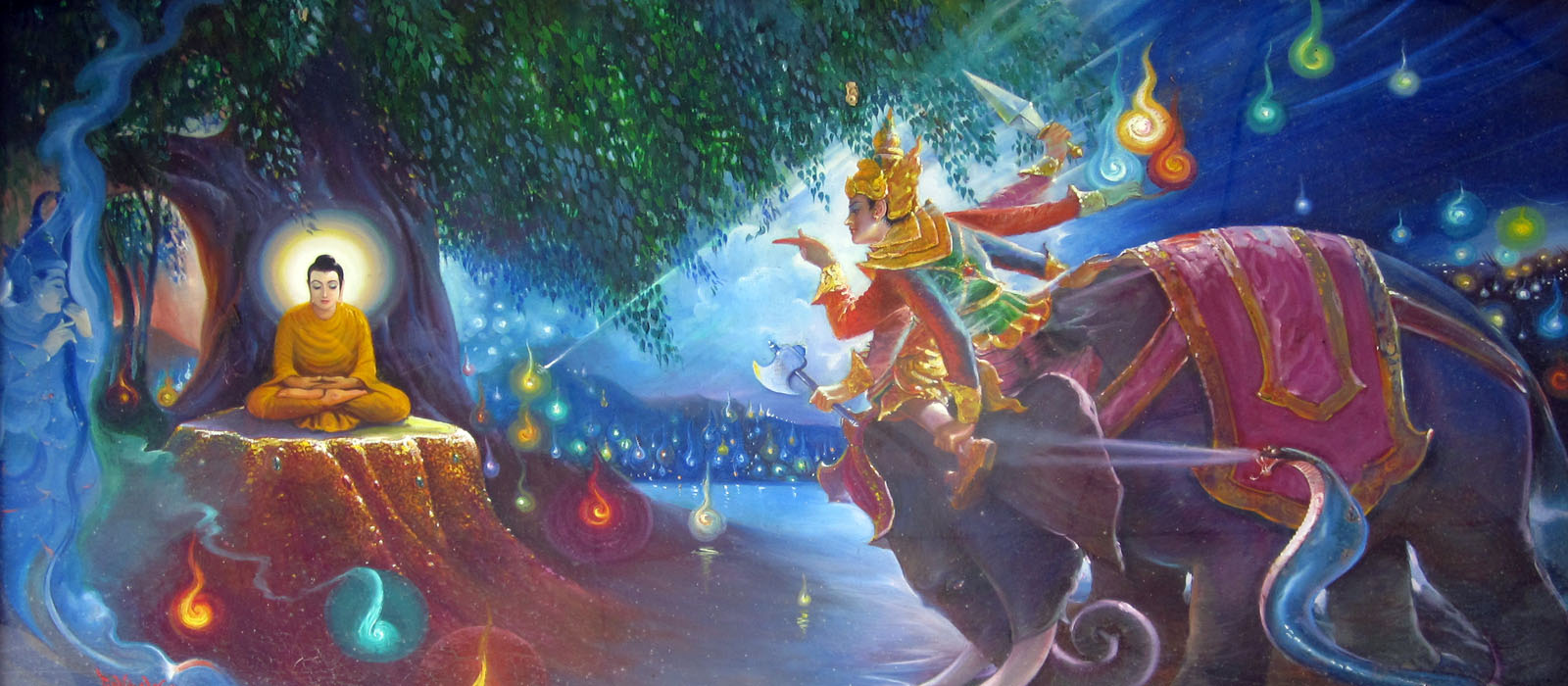The night before his enlightenment, Buddha fought a battle with the Demon God Mara. It was an intense encounter; Mara used everything he had: lust, greed, anger, and doubt, to try to overcome Buddha, yet it was not enough. Mara left in dismay just as Buddha achieved enlightenment.
Ever so often, Mara would return to visit Buddha in hopes of instigating another encounter. Despite the pure evil that Mara represented, Buddha would respond in a completely unexpected manner. He would simply acknowledge his presence and say, “I see you Mara.”
He would then proceed to make tea and offer a cup for Mara to enjoy. After some time, Mara would slink off once again, disappointed on the lack of reaction he received from Buddha, who was not at all bothered by his presence.
__________
T
he story of Buddha and Mara is a powerful one about how we react to events in our lives on a daily basis, especially the negative ones. Mara was a being of pure evil and Buddha had the presence of mind and understanding to not react negatively and instead to offer an act of kindness in a cup of tea.
Think back to a time when you’ve been upset or sad or frustrated, especially with another person. Was your first reaction to offer them some tea? Doubtful.
We react, we get upset, we let these situations overcome us and let our emotions get the best of us. In the scheme of things, these situations are probably not so terrible and moreover they aren’t worth the residual moods they put us in thereafter.
I can’t help but think of the times I’m driving and am overcome with rage at the incompetence of other peoples driving. Even worse is when I get stuck in unexpected traffic. That can just about ruin an evening for me, when really it shouldn’t.
What harm is an extra hour in traffic really? Sure it’s not how you’d like to spend your time, but there’s nothing you can do about it either and that’s the lesson I believe you can find in the story of Buddha and Mara.
Things will happen in your daily life and you have a choice in how you react. Either you can react negatively and allow these events to influence your mood or you can act like Buddha.
You can acknowledge what is happening and accept the situation for what it is. You can offer your compassion and choose to accept what is to come. There is a choice here: whether we get mad or we let it be. Our anger or frustration or discontent will not change anything and will most likely just make things worse.
All things considered, it’s better to be more accepting and gracious, despite how difficult this may be.
Your attitude, not aptitude, will determine your altitude.Zig Ziglar
Being mindful of such situations is how you discover your true self. It is how you cultivate a relationship with yourself. What we all must realize is that we get to determine if that relationship is positive or negative.
So when you encounter one of these situations in the future, try these two simple steps.
1. Be Aware
Whatever is causing your discomfort or fear or annoyance is already there. It is happening. Rather than react to it, just acknowledge the situation you are in. Understand that it’s not as bad as you may make it out to be.
Acknowledge that you can’t do anything to change the situation, but what you can do is shift your mindset.
2. Be Graceful
Choosing to show compassion in the face of challenging situations is a test of sorts. If you are able to show grace, then you are able to think beyond the obvious emotions of frustration and anger. You can begin to build a positive relationship with yourself and your well-being.
More importantly you can truly accept the situation at hand and be perfectly content with it, despite how inconvenient it may be.
So the next time you’re about to explode in a fit of rage over traffic or incompetence or delay, take a moment and think about Buddha and Mara. It can make all the difference.

